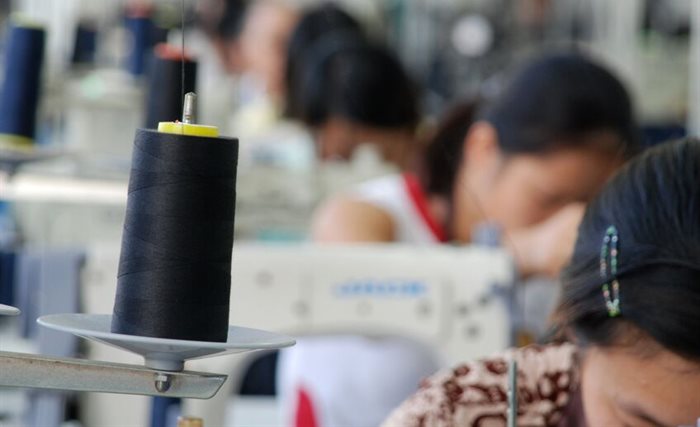
Source: ©Xiaodong Sun -
123RFThe seventh edition of the index ranks 250 of the world’s largest fashion brands and retailers based on their public disclosure of human rights and environmental policies, practices, and impacts across their operations and supply chains. Fashion brands Max Mara, Tom Ford and Jil Sander ranked among the lowers for transparency, scoring 0%.
The majority of brands (85%) do not disclose their annual production volumes despite mounting evidence of clothing waste around the world, and most major brands and retailers (96%) do not publish the number of workers in their supply chain paid a living wage.
The Fashion Transparency Index reveals insights into the most pressing issues facing the fashion industry, such as:
• As new and proposed legislation focuses on greenwashing claims, almost half of major brands (45%) publish targets on sustainable materials yet only 37% provide information on what constitutes a sustainable material.
• Only 24% of major brands disclose how they minimise the impacts of microfibres despite textiles being the largest source of microplastics in the ocean.
• The vast majority of major brands and retailers (94%) do not disclose the number of workers in their supply chains who are paying recruitment fees. This paints an unclear picture of the risks of forced labour as workers may be getting into crippling debt to accept jobs paying poverty wages.
• While many brands use their channels to talk about social justice, they need to go beyond lip service. Just 8% of brands publish their actions on racial and ethnic equality in their supply chains.
Despite these disappointing results, Fashion Revolution says it's encouraged by increasing supply chain transparency among many major brands, primarily with first-tier manufacturers where the final stage of production occurs, e.g. cutting, sewing, finishing and packing. Nine brands have disclosed their first-tier manufacturers for the first time this year.
Fashion Revolution’s cofounder and global operations director Carry Somers says: “In 2016, only five out of 40 major brands (12.5%) disclosed their suppliers. Seven years later, 121 out of 250 major brands (48%) disclose their suppliers. This clearly demonstrates how the index incentivises transparency but it also shows that brands really are listening to the millions of people around the world who keep asking them #WhoMadeMyClothes? Our power is in our persistence.”
Highest scoring brands
Italian brand OVS scored highest again this year with 78%, tied with Kmart Australia and Target Australia, who increased their scores by 22 percentage points vs 2021.
This is followed by H&M, The North Face and Timberland who are tied at 66%. The biggest movers this year are Calzedonia Group brands (Calzedonia, Intimissimi and Tezenis) who increased their score by to 54%, a significant improvement compared to last year’s 11%.
Lowest scoring brands
Seventeen major brands score a dismal 0% rating including: Jil Sander, Fashion Nova, New Yorker, Max Mara, Semir, Tom Ford, Helian Home, Belle, Big Bazaar, Elie Tahari, Justfab, K-Way, Koovs, Metersbonwe, Mexx, Splash and Youngor. A total of 73 brands score in the 0-10% range – that’s almost a third of the world’s largest brands and retailers.
More key findings from 2022 index
Progress on transparency in the global fashion industry is still too slow among 250 of the world’s largest fashion brands and retailers, with brands achieving an overall average score of just 24%, up 1% from last year
"For another year, we have seen major brands and retailers publicly disclose the most information about their policies, commitments and processes on human rights and environmental topics and significantly less about the results, outcomes and impacts of their efforts," says Fashion Revolution.
Most (85%) major brands still do not disclose their annual production volumes despite mounting evidence of overproduction and clothing waste
Thousands of tonnes of clothing waste are found globally. Brands have disclosed more information about the circular solutions they are developing (28%) than on the actual volumes of pre- (10%) and post-production waste they produce (8%). "Brands have sat by as waste-importing countries foot the bill, resulting in serious human rights and environmental implications," notes Fashion Revolution.
Just 11% of brands publish a responsible purchasing code of conduct indicating that most are still reluctant to disclose how their purchasing practices could be affecting suppliers and workers
Greater transparency on how brands interact with their suppliers ought to be a first step towards eliminating harmful practices and promoting fair purchasing practices, according to the NPO. The poor performance on transparency in this vital area is a missed opportunity for brands to demonstrate they are serious about addressing the root causes of harmful working conditions, including the instances where they themselves are the key driver.
Despite the urgency of the climate crisis, less than a third of major brands disclose a decarbonisation target covering their entire supply chain which is verified by the Science-Based Targets Initiative
Many brands and retailers rely heavily on garment-producing countries that are vulnerable to the impacts of the climate crisis, yet Fashion Revolution's research shows that only 29% of major brands and retailers publish a decarbonisation target covering their operations and supply chain, which is verified by the Science Based Targets Initiative.
Only 11% of brands publish their supplier wastewater test results, despite the textile industry being a leading contributor to water pollution
Fashion Revolution points out that the fashion industry is a major contributor to water pollution and one of the most water-intensive industries on the planet. Only 11% of major brands publish their wastewater test result, and only 25% of brands disclose the process of conducting water-related risk assessments in their supply chain.
Transparency on wastewater test results is key to ensuring that brands are held accountable for their potentially devastating impacts on local biodiversity, garment workers and their communities.
Most major brands and retailers (96%) do not publish the number of workers in their supply chain paid a living wage nor do they disclose if they isolate labour costs
According to Fashion Revolution, insufficient progress is being made by most brands towards ensuring that the workers in their supply chain are paid enough to cover their basic needs and put aside some discretionary income. Just 27% of brands disclose their approach to achieving living wages for supply chain workers and 96% do not publish the number of workers in their supply chain paid a living wage.
"In response, we have joined forces with allies across civil society to launch Good Clothes, Fair Pay. The campaign demands groundbreaking living wage legislation across the garment, textile and footwear sector. We are collecting one million signatures from EU citizens from 19th July 2022," the NPO comments.
Fashion Revolution’s policy and research manager Liv Simpliciano believes that greater transparency is crucial in order to address the root cause of many of fashion’s social and environmental issues featured in the Fashion Transparency Index.
“It is frustrating to see brands’ continued lack of transparency on critical issues like their waste volumes, carbon and water footprints and workers being paid a living wage. When there is a lack of transparency on the issue itself, we cannot reasonably understand if what is being done is robust enough to drive the impact we so urgently need.
“Transparency empowers civil society and workers’ representatives and until brands publicly disclose all the information necessary to hold them accountable for their impacts, being un-transparent feels like a deliberate strategy to reinforce the status quo.”
















